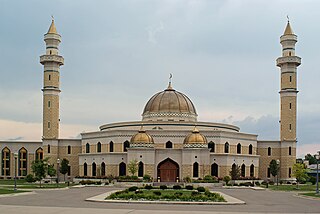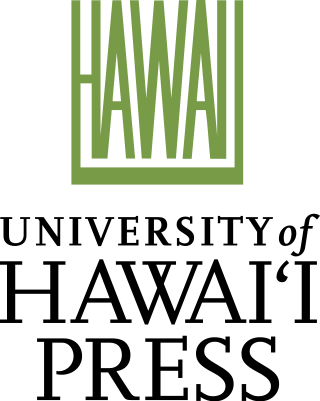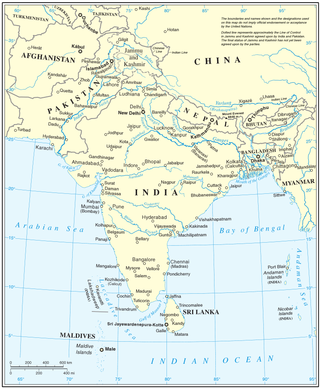| Muslim Association of Hawaii | |
|---|---|
| Religion | |
| Affiliation | Islam |
| Location | |
| Location | 1935 Aleo Pl, Honolulu, HI 96822 |
| Minaret(s) | 0 |
The Muslim Association of Hawaii is a nonprofit and charitable organization or a mosque in Manoa. [1]
Ismail Elshikh is the imam of the association, and is from Cairo, Egypt. [2]
Hakim Ouansafi, from Morocco, is the Arab head of the mosque committee, and is the president of the Muslim Association of Hawaii. Rashid Abdullah is the Information officer.
The Muslim Students' Association of Hawaii was originally composed of students from the University of Hawaii at Manoa. They were members of the East West Center and came from various parts of the world: India, Pakistan, Afghanistan, Indonesia, Malaysia and from the Middle East. They prayed at a cottage in the East West center prior to the purchase of the Manoa building, which became the Muslim Association of Hawaii in 1990. It was the first organization to represent Hawaii's Muslim population. Mohammad Asad Khan was a founding member of the Muslim Students' Association. [3]
In 1979, the MSA incorporated becoming the first official organization to represent Muslims in Hawaii. [3] The group helped form the mosque, which is near the University of Hawaii. [3] The majority of Muslim converts in Hawaii are military personnel.
In 2011, it was reported that the organization receives funds from Prince Abdulaziz Bin Fahad Al-Faisal of Saudi Arabia and that Ouansafi said, “foreign money ... come(s) with strings attached.” [4]
In 2010, Abdel Hameed Shehadeh, freshman at Kapiolani Community College was arrested for devising a plan to travel to Pakistan to join the Taliban or a similar terrorist group. The student was pursuing a liberal arts degree and frequented the Hawaii Islamic center to worship. The Association assisted law enforcement agencies. [5]

The University of Hawaiʻi System is a public college and university system. The system confers associate, bachelor's, master's, and doctoral degrees through three universities, seven community colleges, an employment training center, three university centers, four education centers and various other research facilities distributed across six islands throughout the state of Hawaii in the United States. All schools of the University of Hawaiʻi system are accredited by the Western Association of Schools and Colleges. The UH system's main administrative offices are located on the property of the University of Hawaiʻi at Mānoa in Honolulu CDP.

Islam is the third-largest religion in the United States (1.34%), behind Christianity (67%) and Judaism (2.07%). The Association of Statisticians of American Religious Bodies in its 2020 US Religion census estimated that 1.34% of the population of the United States are Muslim. In 2017, twenty states, mostly in the South and Midwest, reported Islam to be the largest non-Christian religion.

Islam's significance in Germany has largely increased after the labour migration in the 1960s and several waves of political refugees since the 1970s.

The University of Hawaiʻi at Mānoa is a public land-grant research university in Mānoa, a neighborhood of Honolulu, Hawaii. It is the flagship campus of the University of Hawaiʻi system and houses the main offices of the system. Most of the campus occupies the eastern half of the mouth of Mānoa Valley, with the John A. Burns School of Medicine located adjacent to the Kakaʻako Waterfront Park.

The University of Hawaiʻi at Hilo is a public university in Hilo, Hawaiʻi. It is one of ten campuses of the University of Hawaiʻi System. It was founded as Hilo Center at Lyman Hall of the Hilo Boys School in 1945 and was a branch campus of the University of Hawaiʻi at Mānoa. In 1970 it was reorganized by an act of the Hawaiʻi State Legislature and became a campus within the newly created University of Hawaiʻi System.

The William S. Richardson School of Law is the professional graduate law school of the University of Hawaiʻi at Mānoa. Located in Honolulu, Hawaii, the school is named after its patriarch, former Hawaii State Supreme Court Chief Justice William S. Richardson, a zealous advocate of Hawaiian culture, and is Hawaii's only law school.

The East–West Center (EWC), or the Center for Cultural and Technical Interchange Between East and West, is an education and research organization established by the U.S. Congress in 1960 to strengthen relations and understanding among the peoples and nations of Asia, the Pacific, and the United States as part of Cold War diplomatic efforts.

Manoa is a valley and a residential neighborhood of Honolulu, Hawaiʻi. The neighborhood is approximately three miles east and inland from downtown Honolulu and less than a mile from Ala Moana and Waikiki.

Islam is the largest and the state religion of the Islamic Republic of Pakistan. Pakistan has over 236 Million adherents of Islam. As much as 90% of the population follows Sunni Islam. Most Pakistani Sunni Muslims belong to the Hanafi school of jurisprudence, which is represented by the Barelvi and Deobandi traditions.

Islam is the second-largest religion in the United Kingdom, with results from the 2021 Census recording just under four million Muslims, or 6.0% of the total population in the United Kingdom. London has the largest population and greatest proportion (15%) of Muslims in the country. The vast majority of British Muslims in the United Kingdom adhere to Sunni Islam, while smaller numbers are associated with Shia Islam.

Islam in Denmark, being the country's largest minority religion, plays a role in shaping its social and religious landscape. According to a 2020 analysis by Danish researcher Brian Arly Jacobsen, an estimated 256,000 people in Denmark — 4.4% of the population — were Muslim in January, 2020. The figure has been increasing for the last several decades due to multiple immigration waves involving economic migrants and asylum seekers. In 1980, an estimated 30,000 Muslims lived in Denmark, amounting to 0.6% of the population.

Islam is a minor religion in Taiwan and it represents about 0.3% of the population. There are around 60,000 Muslims in Taiwan, in which about 90% belong to the Hui ethnic group. There are also more than 250,000 foreign Muslims working in Taiwan from Indonesia, Malaysia, Thailand and the Philippines, as well as other nationalities from more than 30 countries. As of 2018, there are eleven mosques in Taiwan, with the most notable being the Taipei Grand Mosque, the oldest and largest one.

The University of Hawaiʻi Press is a university press that is part of the University of Hawaiʻi.
The Hamilton Library at the University of Hawaiʻi at Mānoa is the largest research library in the state of Hawaii. The Library serves as a key resource for the flagship Manoa campus as well as the other University of Hawaiʻi system campuses.

Swedish contacts with the Muslim world dates back to the 7th–10th centuries, when the Vikings traded with Muslims during the Islamic Golden Age. Since the late 1960s and more recently, Muslim immigration from the Middle East, Balkans and parts of Africa has impacted the demographics of religion in Sweden, and has been the main driver of the spread of Islam in the country.
Islam in Hawaii organised its first official body in 1979, with the incorporation of the Muslim Students' Association of Hawaii, though the organisation had been operational as early as 1968. The group initially prayed in a cottage, before purchasing the Manoa Mosque in the 1979–1980 period. However, a 1992 study by the American Muslim Support group listed zero mosques in Hawaii in 1992.
The Associated Students of the University of Hawaiʻi at Mānoa (ASUH) is the undergraduate student government representing the 10,000+ full-time, classified, undergraduate students at the University of Hawaiʻi at Mānoa. ASUH was chartered by the University of Hawaiʻi Board of Regents in 1912 and was originally named the Associated Students of the College of Hawai'i.

Following the embargo by Arab oil exporters during the Israeli-Arab October 1973 War and the vast increase in petroleum export revenue that followed, the international propagation of Salafism and Wahhabism within Sunni Islam favored by the conservative oil-exporting Kingdom of Saudi Arabia and other Gulf monarchies achieved a "preeminent position of strength in the global expression of Islam." The Saudi interpretation of Islam not only includes Salafiyya but also Islamist/revivalist Islam, and a "hybrid" of the two interpretations.

Islam is the second-largest religion in South Asia, with more than 650 million Muslims living there, forming about one-third of the region's population. Islam first spread along the coastal regions of the Indian subcontinent and Sri Lanka, almost as soon as it started in the Arabian Peninsula, as the Arab traders brought it to South Asia. South Asia has the largest population of Muslims in the world, with about one-third of all Muslims living here. Islam is the dominant religion in half of the South Asian countries. It is the second largest religion in India and third largest in Sri Lanka and Nepal.